Other events
COMING UP
October 4, 2019 - Conference "Whiteness Studies"

"WHITENESS STUDIES"
October 4, 2019
Université Paris 1 Panthéon Sorbonne
12, place du Panthéon 75005 Paris
Centre Panthéon, salle 6
Conference organized by Magali BESSONE
All presentations and discussions will take place in English.
Programme
9.15 : Welcome
9.30 – 11 am Keynote by George Yancy (Emory University), The End of White Innocence
Discussant: Magali Bessone (Université Paris 1 Panthéon Sorbonne)
11 – 11.15am : coffee break
11.15 – 1pm Session 1 : Les constructions différenciées de la condition majoritaire
Chair: Magali Bessone (Université Paris 1 Panthéon-Sorbonne)
Sylvie Laurent (Sciences Po Paris) : Aggrieved Whiteness : the New Skin of White Supremacy
Juliette Galonnier (Sciences Po Paris) : Becoming Muslim and Becoming White. Conversion to Islam and the discovery of whiteness in France and the United States
Jules Salomone (The Graduate Center CUNY) : Whiteness, Guilt and Shame
1-2.30pm : lunch
2.30 – 3.45pm Session 2 :« Whiteness » et « Blanchité » : la condition blanche en contexte français
Chair: Daniel Sabbagh (Sciences Po Paris)
Sarah Mazouz (CNRS, CERAPS) : Frenchness as a White Citizenship
Ary Gordien (CNRS, LARCA) : Béké, blan péyi or blancs créoles? Self-identifying and being identified as a descendant of colonist in Guadeloupe.
3.45 – 4pm : coffee break
4 – 5.45pm Session 3: Le féminisme a-t-il une couleur ?
Chair: Marie Garrau (Université Paris 1 Panthéon Sorbonne)
Mickaelle Provost (Université Paris 1-Panthéon Sorbonne) : Toward a Phenomenology of Whiteness : some reflections on feminist epistemology
Eléonore Lépinard (Université de Lausanne) : Whiteness and the Moral Borders of Feminism
Alexandrine Guyard-Nedelec (Université Paris 1-Panthéon Sorbonne) : From feminism to reproductive justice: questioning the colour-blindness of the fight for reproductive rights and its implications for non-white women
PAST EVENTS
June 20-22, 2019 - Panel "International organizations and the race question (1945-today)"
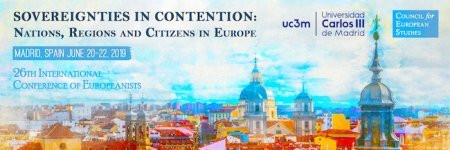
International organizations (IOs) garner increasing interest, with many studies analyzing their reliance on scientific expertise, their role in the transnational circulation of ideas and their capacity to influence state policies. In parallel, heightened debates address the legitimacy of the use of the category of "race" both in the public sphere and in scientific arenas. Controversies frequently oppose those who advocate banning the word "race", dismissed as a fallacious notion responsible for racism, and those who recommend a pragmatic and informed use of the concept to describe multicultural societies and fight against racial discrimination. In this panel, we investigate how IOs in the field of Human Rights and legal prosecution of racism have dealt with references to race and ethnicity since 1945. On what definition of race do IOs rely to legitimate their action? How has this definition evolved throughout history? In what ways do scientific discoveries on race, in both the social and life sciences, permeate their strategies? In turn, how do IOs contribute to shape national debates and state policies on race and ethnicity? This four-paper panel brings together various disciplines (law, sociology, anthropology, history, political science) and covers several international organizations (UNESCO, CERD, ILO, ECHR, International Criminal Tribunal for Rwanda), to investigate how they position themselves regarding anti-racism, the definition of race, the collection of ethnic and racial statistics, and racial categories such as “indigenous”. Against linear accounts of IOs’ action, this session unveils the various hesitations and dilemmas that surround the race question.
Elisabeth Cunin (URMIS-IRD-Université Nice Sophia Antipolis), "Is UNESCO at the origin of anti-racism ? A historical ethnography of programs on race (1946-1952)"
Julie Ringelheim (Center for Philosophy of Law, UCLouvain), "Adjudicating ’race’. How International Tribunals Deal with the “Race” Concept"
Juliette Galonnier and Patrick Simon (INED), "Counting race and ethnicity: analyzing CERD’s requests for ’disaggregated data’ in the fight against racial discrimination"
Laura Giraudo (School of Hispanic American Studies, CSIC) and Juan Martín-Sánchez (University of Seville), "From Race to ’Pragmatic Essentialism’: the coming together of the Inter American Indian Institute and the International Labour Organization
Discussant: Daniel Sabbagh (CERI, SciencesPo)
Conference of the Council of European Studies, Université Carlos III, Madrid
May 2-7, 2019 - Seminar series with Lisa Gannett
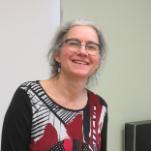
Seminar series organized by Claude-Olivier Doron (Université Paris Diderot, membre of Global Race) for the visit to France of historian and philosopher of science Lisa Gannett (Saint Mary’s University, Halifax).
A scholar on population genetics, genetic ancestry and the uses of the notion of "race" in biology, Lisa Gannett is currently visiting professor at the research center SPHERE. She will give a series of talks in May:
- May 2 and 3, 2.30 to 4.30 pm
Lisa Gannett will give two open seminars on “Genes, Genealogies, and the Construction of Identity”
Genealogy is all the rage, and DNA testing is increasingly used to trace branches of family trees and establish national, ethnic, and racial ancestral proportions. How do patterns of DNA differences contribute to the construction of identity? What are the ethical and political ramifications of adopting and attributing group identities based on genetic genealogy? Can the science deliver on the expectations of the growing number of consumers who purchase DNA ancestry tests?
The sessions will take place in room 636A, 6th floor, building Condorcet, Université Paris Diderot, 4, rue Elsa Morante, 75013, métro Bibliothèque François Mitterrand.
Please contact colivierdoron@gmail.com to receive the papers for discussion.
- May 7th, 4 to 6 pm
Lisa Gannett will give a public lecture on "Population Genetic Structure and Histories and Geographies of Race and Nation"
Genome-wide studies of human population structure find that patterns of genetic variation correlate with self-reported national, ethnic, and racial differences. As these studies proliferate, so too does the direct-to-consumer marketing of genetic ancestry tests, thereby fueling the public perception that truths about our origins, about who we really are, are inscribed in our DNA. However, an examination of the epistemic status of group categories in genomics shows that these categories are mired in historical and geographical constructions of race and nation and cannot provide the authoritatively scientific and empirically objective foundations sought for them.
The conference will take place in room 454 A, 4th floor, building Condorcet, Université Paris Diderot, 4, rue Elsa Morante, 75013, métro Bibliothèque François Mitterrand.
International conference "Human Races After 1945: In Search of an Elusive Historical Rupture", January 24-25, 2019
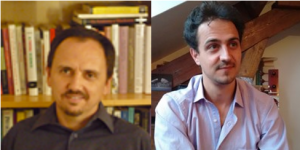
Human Races After 1945: In Search of an Elusive Historical Rupture
Thursday 24 and Friday 25 January 2019
University Paris Diderot
Bâtiment Olympe de Gouges, Place Paul Ricoeur (75013)
Salle Laplanche, 5e étage, s. 576
An international conference convened by Luc Berlivet & Claude-Olivier Doron (member of Global Race)
With the support of: Sphere (CNRS-UMR 7219); La Personne en Médecine/Centre Canguilhem; CERMES3 (CNRS-INSERM-EHESS-UPD); Département LOPHISS-SPH (Université Paris Diderot), Global Race (INED)
Conference Schedule
THURSDAY 24th JANUARY
8:30-9:00 Gathering
9:00-9:30 Luc Berlivet et Claude-Olivier Doron : "General Introduction"
9:30-12:30 Morning Session: A Question of Method. Sorting out human populations after WW2
Marianne Sommer (University of Lucerne): "Is Human Evolution Tree-Shaped? A History of Visual Representations"
Jenny Bangham (University of Cambridge): "Sorting, mapping, calibrating: ‘World’ blood group collections in 1950s Britain"
Pascal Germann (Institute for the History of Medicine/ University of Bern): "Postwar Racial Science. Physical Anthropology and Blood Group Research in Switzerland"
14:00-18:00 Afternoon Session: Human Races in France and Post-colonial Africa from the 1940s to the 1970s
Carole Reynaud-Paligot (Université de Bourgogne-Franche Comté): "L’anthropologie de l’après-guerre : continuité institutionnelle et scientifique 1940-1960"
Agnès Lainé, (Institut des mondes africains/CNRS 8171, IRD 243) : "La race et l’ethnie dans l’anthropologie de Jean Hiernaux. Le cas de l’Afrique des Grands-lacs"
Claude-Olivier Doron (Université Paris Diderot/SPHERE-INHSS): "A many shades of “race”. The variations of the concept of ‘race’ in post-war French sero-anthropology (1945-1970)"
Fabrice Cahen (INED / French Institute for Demographic Studies, Paris): "A quasi-race? The Bigouden population under study (1945-1970)"
FRIDAY 25th JANUARY
09:30-12:30 Morning Session: Admixture, Assimilation and the Gradual Vanishing of Human Races?
Luc Berlivet (CERMES3, CNRS & EHESS): "A fascination with racial hybridization. The study of population admixture in Italy (and around) from the Fascist era to the 1970s"
Francesco Cassata (University of Genoa): "In the Shadow of Franz Boas: the Italian Committee for the Study of Population Problems and the Physical Assimilation of Immigrants, 1930s-1960s"
Snait Gissis (Cohn Institute, University of Tel Aviv): "When there is no ‘race’"
14:00-18:00 – Afternoon Session: Racial and national identities in changing scientific and political contexts
Elise K. Burton (University of Cambridge/Newnham College): "Territory, Race and Ethnicity in Iranian Genetics"
Fenneke Sysling (University of Utrecht): "Physical anthropology and sero-anthropology in Southeast Asia: the racial Wallace line"
Vivette Garcia Deister (Universidad Nacional Autónoma de México): "From Blood to Bytes: The multiple racializations of the Mexican Mestizo"
Ernesto Schwartz-Marin (Exeter University): "The ‘Cosmic Race’ goes genetic: racial legacies and imagined communities in Latin American population genomics"
International conference "Critical Race Theory" - January 17 and 18th, 2019

Organized by Isabelle Aubert and Magali Bessone (member of the Global Race project)
ISJPS-CPCS-NoSoPhi, Université Paris 1 Panthéon Sorbonne
Registration is mandatory. Please contact Lucia Hernandez: Philo-Recherche@univ-paris1.fr
Venue: Université Paris 1 Panthéon-Sorbonne, Centre Panthéon, Salle 216
Thursday, January 17th
9h-9h30 Welcome and introduction
Pour un concept « critique » de race
Chair: Daniel Sabbagh (Sciences Po-CERI)
9h30-10h40 Charles Mills (City University of New York) : « Racial Justice »
11h-11h50 Yala Kisukidi (Université Paris VIII) : « Race et hospitalité »
11h50-12h40 Magali Bessone (Université Paris 1 Panthéon-Sorbonne) : « Supprimer le mot ’race’ de la Constitution? »
La méthode de la Critical Race Theory
Chair: Jean-François Kervégan (Université Paris 1 Panthéon-Sorbonne)
14h-15h10 Jean-François Gaudreault Desbiens (Université de Montréal): « Le narrativisme comme legs juridique marquant de la Critical Race Theory ? »
15h30-16h20 Julie Saada (Sciences Po): « Récits et contre-récits dans le droit »
16h20-17h10 Isabelle Aubert (Université Paris 1 Panthéon-Sorbonne) : « Une ligne marxienne dans la Critical Race Theory? »
***
Friday, January 18th
La Critical Race Theory, un mouvement critique du droit proprement américain ?
Chair: Marie Garrau (Université Paris 1 Panthéon-Sorbonne)
9h30-10h40 Kimberlé W. Crenshaw (Columbia University / University of California, Los Angeles): « Critical Race Theory in the Post-Civil Rights Era: Unpacking Colorblindness, Post-Racialism and Ethno-Nationalism »
11h-11h50 Mathias Möschel (Central European University, Budapest) : « Réception et pertinence de la Critical Race Theory en Europe »
11h50-12h40 Ary Gordien (Ecole des Hautes Etudes en Sciences Sociales) : « Are AntiDiscrimination Policies the closest French equivalent to Critical Race Theory? »
Quelle place pour l’intersectionnalité ?
Chair: Marie-Xavière Catto (Université Paris 1 Panthéon-Sorbonne)
14h-15h10 Maria Drakopoulou (University of Kent) : « Travelling Feminisms: some reflections on questions of jurisprudence, difference and legal tradition »
15h10-16h Hourya Bentouhami (Université Toulouse Jean-Jaurès) : « Intersectionnalité, un outil de lutte contre les discriminations ? »
16h20-17h10 Stéphanie Hennette-Vauchez (Université Paris Nanterre) : « Affaire Baby Loup, laïcité à la française ou discrimination intersectionnelle ? »
17h10-17h30 Alexandrine Guyard-Nedelec (Université Paris 1 Panthéon-Sorbonne) : Mot de conclusion
Conference - The White Condition: Reflection on a French Majority, June 29th, 2018
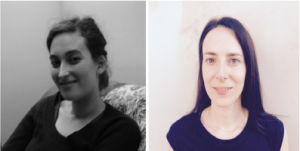
Sarah Mazouz (CNRS-CERAPS), member of the Global Race project, co-organizes with Mathilde Cohen (CNRS-IMM-UConn), a conference on "The white condition: Reflection on a French majority". Patrick Simon and Juliette Galonnier, also members of the Global Race project, will participate. All exchanges and discussions will be in French.
Date: Friday June 29, 2018
Venue: Room 13, EHESS, 105 bd Raspail, 75006 Paris
SHORT PRESENTATION
Throughout the past decade, studies of racialization processes have progressively emerged within French social sciences. While this body of work indirectly sheds light on the majority experience, it often fails to address the issue of whiteness. This workshop aims at encouraging a reflection taking at its starting point what we call the "white condition" within the French context. We build upon the idea first developed by Whiteness Studies according to which whiteness is a social status that manifests itself in three main ways. First, thinking of oneself as white usually implies that one is not racializable, while members of other groups are. Second, this can lead whites to feel entitled to racialize members of these other groups, i.e. assigning them to a subaltern position in a subordinating move based on the assumption of a supposed radical otherness. Third, defining oneself as white often entails the belief that one holds a neutral and non-racialized viewpoint on the world, by contrast to "others" who are deemed irremediably tied to a given perspective determined by their race.
PROGRAM
8.30 am - Welcome
9am - Introduction
by Mathilde Cohen
Session 1 - 9.30am-12pm: Thinking the White Condition within the French Context
Discussant : Pap Ndiaye (Sciences Po)
Sarah Fila-Bakabadio (Université de Cergy-Pontoise): "Body and whiteness through the lens of blackness"
Mathias Möschel (Central European University): "For a socio-legal comparative analysis of anti-white racism: France and Germany"
Maxime Cervulle (Université de Paris 8, CEMTI-ACMÉ): "« Diversity » as a regime of representation. Thinking about the conditions of a critique of whiteness within audiovisual media and live entertainment"
Julien Talpin (CNRS/CERAPS/Université de Lille): "Collecting testimonies of racial discrimination when one is white. Reflections on an interview-based research design"
Session 2 - 1pm-2.30pm: Whiteness in Overseas territories: Plantocratic Legacies and Postcolonial Configurations
Discussant : Malcom Ferdinand (KITLV/Royal Netherlands Institute of Southeast Asian and Caribbean Studies)
Audrey Célestine (Université Lille 3/CERAPS): "« Man sé an boug Nor-karayib! » (Me, I am a fella from Nord Caraïbe). Distanciating oneself from whiteness in the Martinican context"
Clémence Léobal (EHESS): "Bakaa whiteness, a political definition of race? Reflexive analysis on categories designating the majority group in Western French Guiana"
Session 3 - 2.30pm-4pm: Revealing whiteness: Islam and the White Condition
Discussant : Patrick Simon (INED)
Juliette Galonnier (INED): "Becoming Muslim and becoming white: conversion to Islam as discovery of whiteness in France and the United States"
Hanane Karimi (Université de Strasbourg/Laboratoire Dynamiques Européennes): "Analyzing the implicit criteria of whiteness in the designation of Arabo-Muslim people"
Session 4 - 4.30pm-6pm: The Construction of White Womanhood
Discussant: Mélanie Gourarier (CNRS/LEGS)
Éléonore Lépinard (Université de Lausanne): "The contours of feminist whiteness: race, religion, and political subjectivation of white feminists in France and Québec
Jennifer Boittin (Penn State College of the Liberal Arts): "European or white? Circulation, gender and race during the interwar period"
6pm-6.30pm: Conclusion
by Sarah Mazouz
This conference received funding from the ANR project Global-Race and the CERAPS.
Carole Reynaud-Paligot - Le racisme d’hier à aujourd’hui
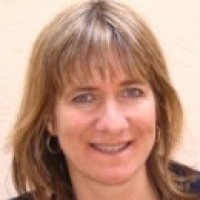
Carole Reynaud-Paligot, member of the Global Race project, gives a public lecture on the theme :
"Le racisme d’hier à aujourd’hui"
Thursday April 5, 2018, at 6pm
Venue: Pierrevives, 907 Rue du Professeur Blayac, 34080 Montpellier
She will talk about the exhibit she curated Nous et les autres. Des préjugés au racisme.
More information here.
Elisabeth Cunin - Birth of Indigenism and Anti-Racism
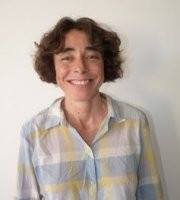
Elisabeth Cunin, a member of the Global Race project, will talk at the EHESS seminar « La fabrication du sujet politique. Réflexivité, subjectivités et pouvoir », on the following topic:
« Entre ethnographie des institutions et trajectoire biographique. Le rôle de Juan Comas dans la naissance de l’indigénisme et de l’anti-racisme »
Thursday April 5, 2018, from 1 to 5 pm
Room AS1_08, 54 bd Raspail 75006 Paris
To prepare the session, attendees may want to read the following text : Todd Shepard, 2011, "Algeria, France, Mexico, UNESCO : a transnational history of anti-racism and decolonization, 1932-1962", Journal of Global History, p.273-297.
This session is organized along with the Brazil scientific collaboration program CAPES COFECUB "Les régimes nationaux de l’autochtonie. Situations autochtones et question nationale dans les Amériques et en Océanie".
Sarah Mazouz - La République et ses autres

Global Race member Sarah Mazouz will be presenting her book La République et ses autres : politiques de l’altérité dans la France des années 2000, on December 6th 2017 at 6.30pm at café-librairie Michèle Firk: 9, rue François Debergue in Montreuil (near Paris).
Talk by Carole Reynaud-Paligot : "The racialization of identities, now and then"
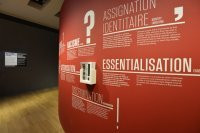
Global Race member, historian Carole Reynaud-Paligot gave a talk entitled "La racialisation des identités d’hier à aujourd’hui" on November 22, 2017, as part of the exhibit "Nous et les autres, des préjugés au racisme" at the Musée de l’Homme in Paris.
L’étude de la racialisation des identités dans le passé nous dévoile les mécanismes et les acteurs de ces processus. Elle peut nous aider à mieux comprendre les phénomènes d’ethnicisation/racialisation dans la société française d’aujourd’hui.
Interview with Sarah Mazouz : « Les dynamiques de racialisation sont tues par les pouvoirs publics »
Global Race member Sarah Mazouz gave a long interview on November 17th, 2017 to the website MeltingBook on the central issue of alterity in French society.
Excerpt: "Quand je dis « racial », j’entends par là un rapport de pouvoir spécifique produit socialement – comme la classe ou le genre. Ces processus de racialisation varient d’une époque à l’autre mais ils permettent dans le cas d’une société donnée de placer certains de ses membres dans une position inférieure ou subalterne en justifiant cela par l’altérité – supposée radicale – de leur origine. Parler de racialisation, cela permet de mettre en évidence des processus qui changent d’une époque à une autre, qui ne visent pas toujours les mêmes groupes, mais qui concourent systématiquement à leur infériorisation. C’est aussi une notion qui sert à voir comment le racisme a sédimenté dans les catégories de perception, même chez des personnes qui n’adhèrent pas activement à une idéologie raciste, et comment il peut continuer d’influer sur la manière dont certain.e.s sont perçu.e.s et, de ce fait, assigné.e.s."
Public presentation of Sarah Mazouz’s book "La République et ses autres" (The French Republic and its Others)
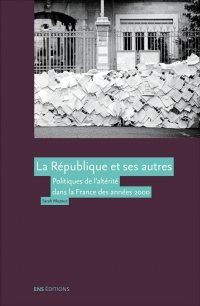
Sarah Mazouz, member of the Global Race project, presented her book La République et ses autres (ENS Editions), on April 25, 2017 at the Lieu-Dit, à Paris.
Summary of the book
Is France afraid of its others? Focusing on the various discourses and practices that have been progressively formalized over the last 15 years, Sarah Mazouz investigates "French policies of otherness." Drawing upon a double ethnographic study in government bodies fighting racial discrimination and naturalization offices of a large city in the Parisian region, Sarah Mazouz demonstrates how issues of immigration, nation and racialization are articulated in social space. By investigating these two public policies, she explores processes of inclusion and exclusion within the nation itself (by looking at antidiscrimination’s various modalities) and outside of it (by looking at naturalization practices). In doing so, she strives to grasp the paradoxical relationships that ties the Republic to its others and the plurality of logics that relate to the production of a national order.
Table of contents
General introduction
Chapter 1 - Racial discrimination issues. An incomplete recognition.
Chapter 2 - Discrimination policies. Limits and ambivalences of the State.
Chapter 3 - Facing the nation - Administrative practices and naturalization experiences
Chapter 4 - French, and yet different. Naturalization ceremonies and the paradoxes of the naturalized category.
General conclusion
From the exhibition “Téléphone arabe” to the web documentary “On se la raconte!”
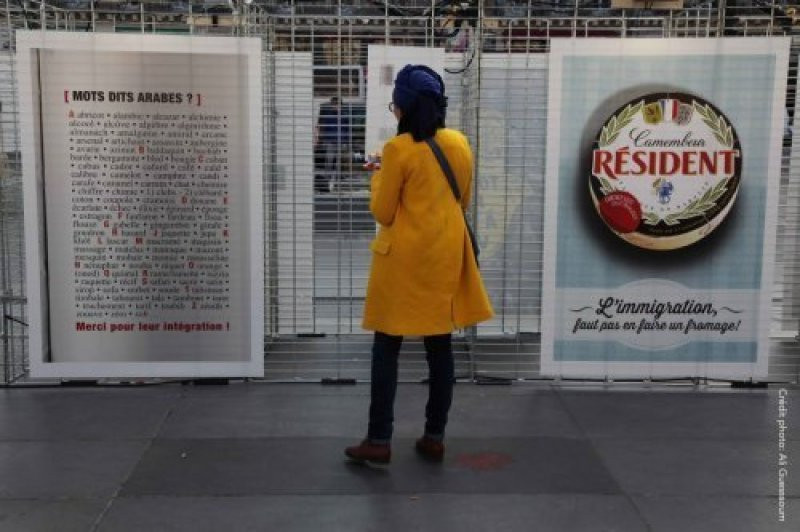
The NGO Remembeur organized a travelling exhibition entitled "Téléphone Arabe" (French equivalent to “Chinese Whispers”). Leaning on humor and irony, it describes everyday racism and the way in which stereotypes and encompassing overviews racialize individuals categorized as Arabs or Blacks. The last step of the exhibition’s path was a film studio where the visitors could go, react to the exhibition and talk about their own lived experience. The recording of these stories from everyday life gave the Web documentary “On se la raconte” (which may be translated by “Let’s show off” to keep the pun conveying both pride and the idea that something is said and shown).
On February 27, 2017 , the research program Global-Race was happy to welcome the film director, Nassima Guessoun and the founder of Remembeur, Ali Guessoum. A work session followed the screening of a draft version of the web documentary to discuss on the filmmaking.
